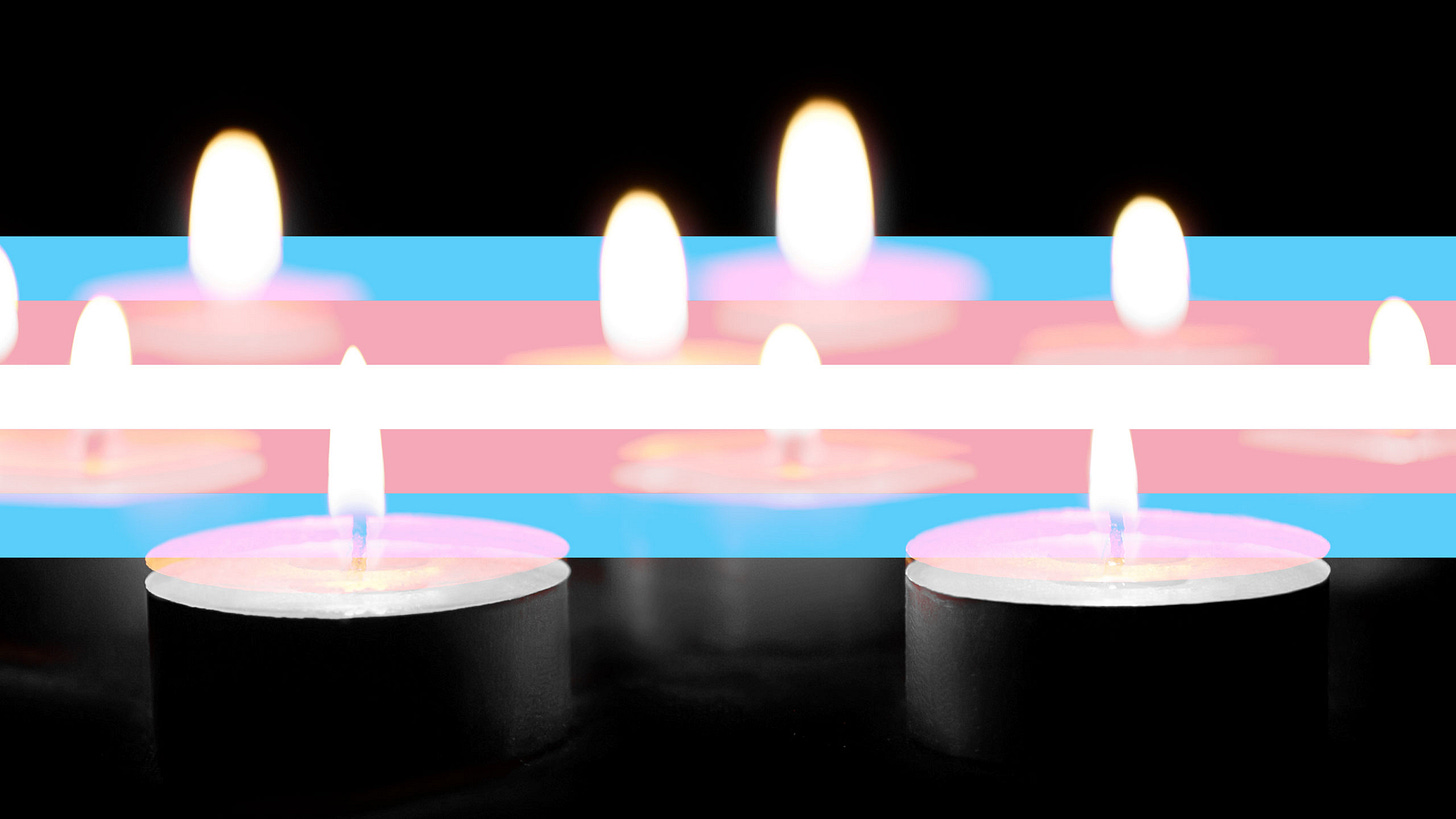Global Roundup: Woman Afghan Pilot, Ugandan Trans Campaigner Fights for Inclusion, Anti-Sexual Violence Decree in Indonesia, Health-Care Hub for LGBTQ Community in Canada, Trans Day of Remembrance
Compiled by Samiha Hossain
‘It was a huge accomplishment for Afghanistan’: Mohadese Mirzaee was a pilot on her country’s first all-female flight. Photograph: Handout via The Guardian
In September, Mohadese Mirzaee, 23, became Afghanistan’s first woman commercial airline pilot, flying to Turkey, Saudi Arabia, and India. She had made headlines as one of the pilots of a Kam Air Boeing 737 – the country’s first flight with an all-female crew. However, Mirzaee says she was robbed of her hopes for the future once the Taliban established an all-male government and hundreds of women were removed from their jobs.
Afghan women have done amazingly over the past decades. We’ve used any opportunities given to us. We fought for our rights and scored big achievements. I was hopeful that a window had opened. I was approached by many young women who also dreamed of becoming a pilot. With the Taliban takeover, it all disappeared. They are the same barbaric group they have been in the past and they want to silence women. If I give up on my passion, they have achieved their goal. - Mohadese Mirzaee
After the Taliban takeover, Mirzaee traveled to Bulgaria on a pre-existing visa and has been advised to seek asylum there, as her visa has just expired. Her mother and sisters were also evacuated from Afghanistan, flying to Albania, and most of her friends are scattered across the globe. Despite the dire situation, Mirzaee is determined to continue pursuing her passion.
I’m hoping another airline will give me a chance to continue my career. A lot has been taken from me, but I will fight for my passion. That is what makes me, me. - Mohadese Mirzaee
Cleopatra Kambugu, 35, a Ugandan activist who advocates for sexual and gender minorities, and the first transgender person to have her new gender recognised by the government, is seen at her house in Kampala, Uganda November 7, 2021. REUTERS/Abubaker Lubowa via Thomson Reuters
Molecular biologist, star of a Netflix documentary and social campaigner Cleopatra Kambugu was one of the first of a few Ugandan transgender people to have her gender identity officially changed. Now, she wants Uganda to widen the options at its next census in 2023 to include the transgender community.
We don't count transgender people on any document ... gender is either male or female. You are an afterthought...erased. So can we address the generational, deliberate erasure? - Cleopatra Kambugu
Kambugu hopes that documenting the transgender community allows them a greater voice and more security in the conservative country where transgender people have no legal status and are often conflated with members of the gay community. Colonial-era laws banning gay sex remain and gay people have faced arrest, ostracism and violence.
According to Fridah Mutesi, a lawyer who heads a firm that defends the rights of sexual minorities, transgender people have been battered, disowned by their families, raped and banished from villages – so, most keep their identities a secret.
Kambugu underwent hormonal therapy and gender affirming surgery in Thailand in 2015 and has since obtained a Ugandan passport and identity document that state her gender as female. In her Netflix documentary, she said she struggled with issues like using a male bathroom or living in a male university hall. She was pushed to study for her masters in molecular biology to try to understand the roots of gender identity from an incident in university when a tabloid newspaper published her name, saying she was gay, leading to public stares and humiliating jokes.
Though Frank Mugabi, spokesperson for the Ministry of Gender, Labour and Social Development, declined to comment when asked whether a change to the census would be considered, Kambugu is passionate in ensuring other transgender people do not face the same struggles as her.
Indonesian activists from a women's anti-violence movement hold a banner reading 'Freedom is free from sexual violence' during a protest outside the Ministry of Education and Culture in Jakarta on Feb. 10, 2020. (Photo: AFP)
Indonesia introduced a ministerial decree in October to address sexual violence in the country’s universities. It provides a wider definition of sexual violence, which includes verbal, physical, and non-physical sexual assault, as well as assault through information and communication technology. It also introduces an array of punishments for perpetrators in universities, including dismissal or expulsion of the perpetrators.
Islamist groups have strongly rejected the ministerial decree, interpreting it as a legal basis to justify extramarital sex in universities. However, activists have dismissed their objections.
Muhammadiyah, the second-largest Islamic organization in Indonesia, said in a recent article that the term “without the victim’s consent” contained in the regulation could be interpreted as condoning immoral acts and free sex based on consent. They have urged the government to revoke the ministerial decree or at least to revise the regulation so as to make its articles in accordance with the existing regulations and Sharia principles.
Activists, however, continue to defend the new regulation. Sayyidatul Insiyah, a legal researcher at the Jakarta-based Setara Institute for Democracy and Peace, said her group appreciated the minister taking such a progressive step in terms of asserting the law and protecting women.
We urge the government to widely circulate the intentions behind this ministerial decree and enforce it so as to prevent disinformation from conservative groups, which have incorrectly stated that the regulation legalizes adultery. - Sayyidatul Insiyah
I Gusti Ayu Bintang Darmawati, the minister of women empowerment and child protection, believes that the ministerial decree will help in addressing sexual violence on campus, which has not been properly dealt with in the past.
Sexual violence on campus is a pervasive issue in many countries. It is patriarchal fuckery that religious groups are more concerned about adultery than young women’s safety and wellbeing.
As a transgender man, Max Denley is very familiar with barriers in the health-care system. He says HQ is a step in the right direction. (Ehjay Estebar) via CBC
A new clinic called HQ is set to open in early 2022 in Toronto, Canada, which will address many of the issues gay men and the trans community face when accessing health care. HQ will provide a range of services all under one roof, including sexual health and mental health services as well as social programming.
We really find that sexual health, mental health and some of the social needs of the community all go hand-in-hand. We may have people who are coming here just for sexual health care, who in the course of talking to them, you uncover that they have significant mental health needs. – Dr. Kevin Woodward, the clinic's medical director
Max Denley is a trans man and works as a coordinator at a non-profit that fights LGBTQ discrimination. He understands the importance of receiving health care from people who understand the community’s experiences. He once told a nurse that he was scheduled to have a hysterectomy and she laughed and didn't believe him. He thinks this is indicative of some of the discomfort that trans patients can face.
Ideally, we'd love for all doctors and health-care practitioners to just be trained and knowledgeable and accepting. But in the meantime, when we know that's not the case, it is good to have a place where that is possible. - Max Denley
HQ's directors are driven by a desire to create an inclusive space for gay men and trans people of all backgrounds.
We have folks who are from every walk of life who [will come] through these halls. We need to ensure that we are providing space ... We want to be the centre that provides a voice to these folks within our communities. - Osmel Maynes, HQ's social director
Credit: Getty Images via Xtra
This year has already surpassed the record number of murders of trans and gender nonconforming people in the United States in 2020—and it’s only November.
According to the Human Rights Campaign (HRC), at least 46 trans people have been shot or violently killed in the U.S. since the start of the year, marking 2021 as the most violent year on record since the organization started tracking these numbers in 2013.
But the issue extends beyond the U.S. Research suggests that globally, a trans person is murdered every three days; Transgender Europe registered at least 375 murders worldwide between September 2020 and October 2021, a 7 percent increase from the same period in 2020.
It’s a stark reality to keep in mind as we mark the Trans Day of Remembrance on Nov. 20.
Also known as the International Transgender Day of Remembrance, the Trans Day of Remembrance (TDoR) is held annually on Nov. 20. The date serves as a time to mourn and name trans and gender-diverse people murdered in the past year and bring awareness to ongoing trends in anti-trans violence.
The Trans Day of Remembrance was founded in 1999 by a group of trans people in San Francisco. A year after the murder of Rita Hester, a Black trans woman, in Massachusetts in November 1998, the group wanted to bring awareness to anti-trans violence and memorialize Hester and other lives lost.
The Transgender Day of Remembrance is not an event for fundraisers and beer busts. It’s not an event we ‘celebrate.’ It is not a quick and easy one-day way for organizations to get credit for their support of the transgender community…It’s not something to trot out on the 20th of November and forget about. We should be working every day for all of us, living and dead.” Gwendolyn Ann Smith, one of the event’s founders.
Samiha Hossain (she/her) is a student at the University of Ottawa. She has experience working with survivors of sexual violence in her community, as well as conducting research on gender-based violence. A lot of her time is spent learning about and critically engaging with intersectional feminism, transformative justice and disability justice.
Samiha firmly believes in the power of connecting with people and listening to their stories to create solidarity and heal as a community. She refuses to let anyone thwart her imagination when it comes to envisioning a radically different future full of care webs, nurturance and collective liberation.









"Islamist groups have strongly rejected the ministerial decree, interpreting it as a legal basis to justify extramarital sex in universities. However, activists have dismissed their objections."
Typical fundamentalist nonsense. Dear fundamentalists, have a big glass of STFU. You are holding up human progress.